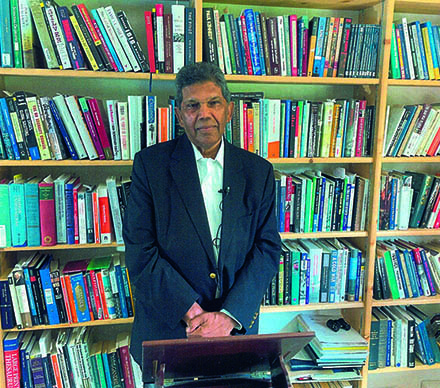By Dr Bertrand Ramcharan (Guyana)
Formerly Special Advisor to the UN
Secretary-General (USG) and UN Fellow at Harvard University
The United Nations was born in 1945 at the advent of the first Cold War, which lasted from 1945 to 1989. During the first Cold War countries of what came to be known as NATO, and countries of what came to be known as the Warsaw Pact faced off all across the world, and at the United Nations.
The leadership of the United Nations, notably Representatives on the UN Security Council, and the UN Secretary-General, learned a crucial lesson, namely that progress could only be achieved incrementally, in selected areas at the United Nations, when a consensus could be negotiated through the exercise of careful judgement and discreet diplomacy.
During the era of the first Cold War, careful and discreet diplomacy led to consensus on agendas for development, decolonization, peacekeeping, preventive diplomacy, and emergency humanitarian assistance. Progress on human rights issues was halting.

